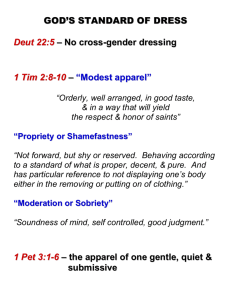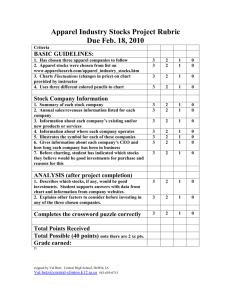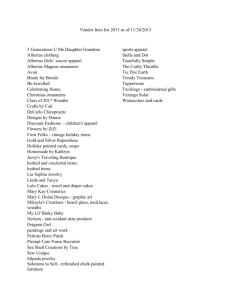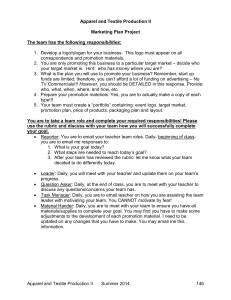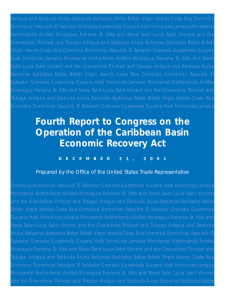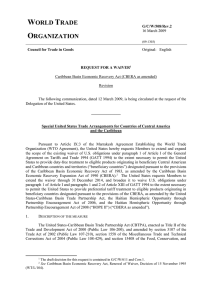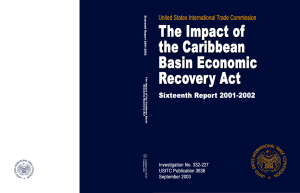CBI Country Eligibility
advertisement
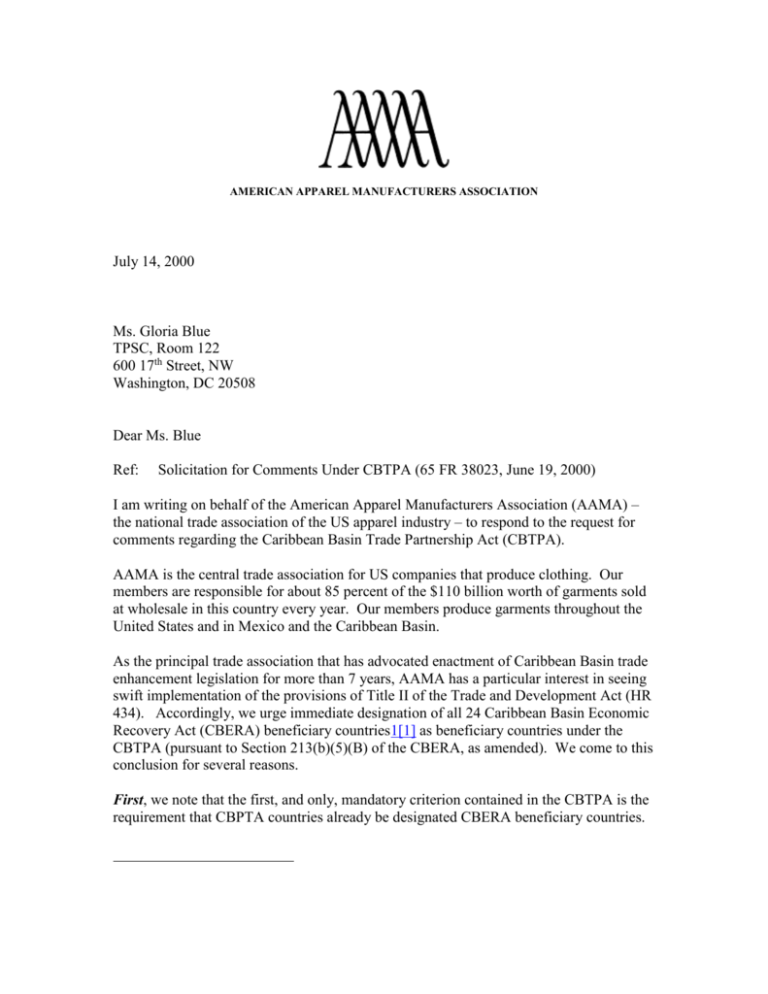
AMERICAN APPAREL MANUFACTURERS ASSOCIATION July 14, 2000 Ms. Gloria Blue TPSC, Room 122 600 17th Street, NW Washington, DC 20508 Dear Ms. Blue Ref: Solicitation for Comments Under CBTPA (65 FR 38023, June 19, 2000) I am writing on behalf of the American Apparel Manufacturers Association (AAMA) – the national trade association of the US apparel industry – to respond to the request for comments regarding the Caribbean Basin Trade Partnership Act (CBTPA). AAMA is the central trade association for US companies that produce clothing. Our members are responsible for about 85 percent of the $110 billion worth of garments sold at wholesale in this country every year. Our members produce garments throughout the United States and in Mexico and the Caribbean Basin. As the principal trade association that has advocated enactment of Caribbean Basin trade enhancement legislation for more than 7 years, AAMA has a particular interest in seeing swift implementation of the provisions of Title II of the Trade and Development Act (HR 434). Accordingly, we urge immediate designation of all 24 Caribbean Basin Economic Recovery Act (CBERA) beneficiary countries1[1] as beneficiary countries under the CBTPA (pursuant to Section 213(b)(5)(B) of the CBERA, as amended). We come to this conclusion for several reasons. First, we note that the first, and only, mandatory criterion contained in the CBTPA is the requirement that CBPTA countries already be designated CBERA beneficiary countries. Second, overwhelming evidence exists that the CBERA beneficiary countries have already met the remaining discretionary criteria. Our members operate in each of the nine major apparel-producing countries2[2] and, in many cases, have been doing so for many years. In those countries they fulfill a number of roles – such as importer, exporter, employer, factory owner – through which they have been able to observe and evaluate business, labor, and intellectual property rights practices across the region. The universal opinion of our members, drawing upon their years of experience in those countries, is that these countries satisfy all the discretionary criteria contained in the CBTPA. Third, the apparel trade associations from most of the major apparel producing countries3[3] have endorsed the Worldwide Responsible Apparel Production (WRAP) program. The WRAP program is an independent factory inspection and certification program intended to ensure that apparel is made under ethical and humane conditions throughout the world. The WRAP program is grounded on a 12-point code of conduct whose planks mirror many of the conditions contained in the CBTPA including, prevention of child labor, promotion of core labor standards, adherence to proper customs procedures, and cooperation on drug interdiction. Fourth, a variety of US Government documents – such as the National Trade Estimates report, the annual State Department human rights report, the Special 301 report -indicate widespread compliance on the part of CBERA countries in meeting the discretionary criteria contained in the CBTPA. For example, a 1996 Labor Department report on child labor problems in the apparel industry noted, The consensus of government officials, industry representatives, unions and NGOs interviewed by the Department of Labor in the Dominican Republic, El Salvador, Guatemala, and Honduras is that child labor is not now prevalent in their garment export industries.4[4] Finally, we would note that early designation of the beneficiary countries is important to ensure a seamless transition between the current CBI Special Access Program and the new program outlined under the CBTPA. To bring products back from the CBI in early October, companies are working to develop their sourcing and costing structures now. However, they cannot reliably determine the cost structure if they do not know which countries are included in the program. Any reluctance on the part of companies to use the program will negatively affect exports of US fabric and yarn to the region. Thank you for providing us this opportunity to comment. If you have any questions, please contact me on 703-524-1864 or via email on slamar@americanapparel.org. Sincerely, Stephen Lamar Director, Government Relations [1] Antigua and Barbuda, Aruba, Bahamas, Barbados, Belize, British Virgin Islands, Costa Rica, Dominica, Dominican Republic, El Salvador, Grenada, Guatemala, Guyana, Haiti, Honduras, Jamaica, Montserrat, Nicaragua, Netherland Antilles, Panama, Saint Christopher-Nevis, Saint Lucia, Saint Vincent and the Grenadines, and Trinidad and Tobago. [2] Costa Rica, Dominican Republic, El Salvador, Guatemala, Haiti, Honduras, Jamaica, Nicaragua, Panama. [3] The following groups in the Caribbean Basin have endorsed the WRAP program: Asociación Dominicana de Zonas Francas, Inc; Asociación Salvadoreña de la Industria de la Confeccion; Association des Industries d'Haiti; Asociación Hondureña de Maquiladores; Comisión Nacional de Zonas Francas (Nicaragua); and the Jamaica Apparel Institute. 5[4] The Apparel Industry and Codes of Conduct: 1996. A Solution to the International Child Labor Problem. US Department of Labor.


